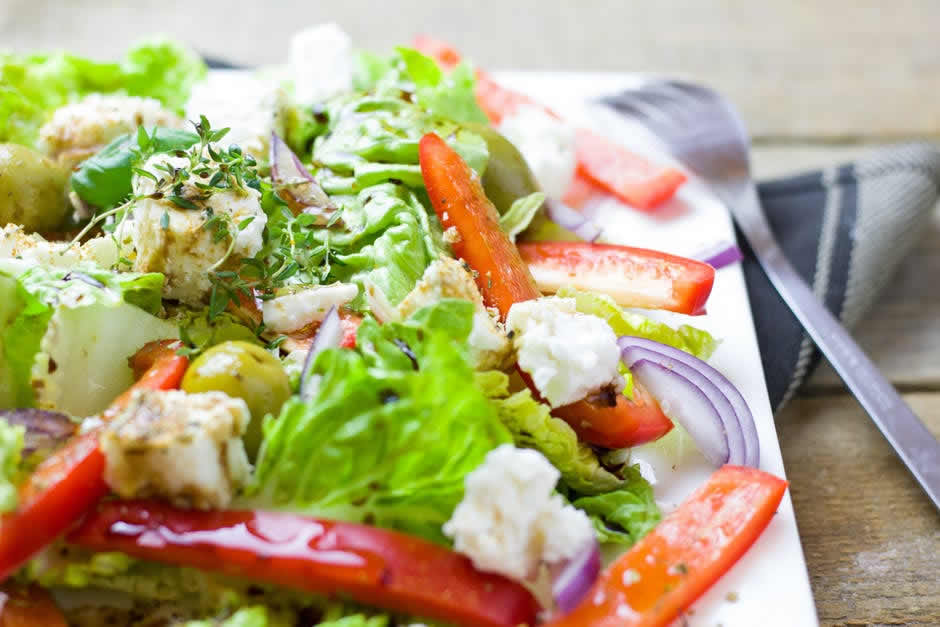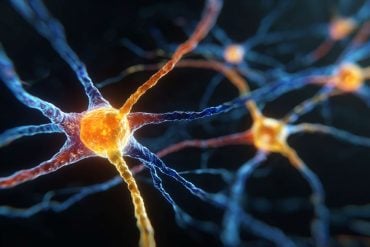Summary: Older adults who eat a diet rich in vegetables, fruits, fish and nuts have greater brain volume, a new study reveals. Researchers say diet can influence brain shrinkage and the development of neurodegenerative diseases as we age.
Source: AAN.
People who eat a diet rich in vegetables, fruit, nuts and fish may have bigger brains, according to a study published in the May 16, 2018, online issue of Neurology.
“People with greater brain volume have been shown in other studies to have better cognitive abilities, so initiatives that help improve diet quality may be a good strategy to maintain thinking skills in older adults,” said study author Meike W. Vernooij, MD, PhD, of the Erasmus University Medical Center in Rotterdam, the Netherlands. “More research is needed to confirm these results and to examine the pathways through which diet can affect the brain.”
The study included 4,213 people in the Netherlands with an average age of 66 who did not have dementia.
Participants completed a questionnaire asking how much they ate of nearly 400 items over the past month. Researchers looked at diet quality based on the Dutch dietary guidelines by examining intake of foods in the following groups: vegetables, fruit, whole grain products, legumes, nuts, dairy, fish, tea, unsaturated fats and oils of total fats, red and processed meat, sugary beverages, alcohol and salt. Researchers ranked the quality of diet for each person with a score of zero to 14. The best diet consisted of vegetables, fruit, nuts, whole grains, dairy and fish, but a limited intake of sugary drinks. The average score of participants was seven.
All participants had brain scans with magnetic resonance imaging to determine brain volume, the number of brain white matter lesions and small brain bleeds. The participants had an average total brain volume of 932 milliliters.
Information was also gathered on other factors that could affect brain volumes, such as high blood pressure, smoking and physical activity.
Researchers found after adjusting for age, sex, education, smoking and physical activity that a higher diet score was linked to larger total brain volume, when taking into account head size differences. Those who consumed a better diet had an average of two milliliters more total brain volume than those who did not. To compare, having a brain volume that is 3.6 milliliters smaller is equivalent to one year of aging.
Diet was not linked to brain white matter lesions or small brain bleeds.
For comparison, researchers also assessed diet based on the Mediterranean diet, which is also rich in vegetables, fish and nuts, and found brain volume results were similar to those who adhered closely to Dutch dietary guidelines.
Vernooij said the link between better overall diet quality and larger total brain volume was not driven by one specific food group, but rather several food groups.

“There are many complex interactions that can occur across different food components and nutrients and according to our research, people who ate a combination of healthier foods had larger brain tissue volumes,” Vernooij said.
She noted that because the study was a snapshot in time, it does not prove that a better diet results in a larger brain volume; it only shows an association.
Limitations of the study include that diet was self-reported and relied on someone’s ability to remember what they ate over one month, and the study was conducted in a Dutch population and therefore other populations may not have similar results.
Source: Renee Tessman – AAN
Publisher: Organized by NeuroscienceNews.com.
Image Source: NeuroscienceNews.com image is in the public domain.
Original Research: Abstract for “Better diet quality relates to larger brain tissue volumes: The Rotterdam Study” by Pauline H. Croll, Trudy Voortman, M. Arfan Ikram, Oscar H. Franco, Josje D. Schoufour, Daniel Bos, and Meike W. Vernooij in Neurology. Published May 16 2018.
doi:10.1212/WNL.0000000000005691
[cbtabs][cbtab title=”MLA”]AAN “Better Diet May Prevent Brain Shrinkage in Older Adults.” NeuroscienceNews. NeuroscienceNews, 16 May 2018.
<https://neurosciencenews.com/diet-brain-shrinkage-aging-9069/>.[/cbtab][cbtab title=”APA”]AAN (2018, May 16). Better Diet May Prevent Brain Shrinkage in Older Adults. NeuroscienceNews. Retrieved May 16, 2018 from https://neurosciencenews.com/diet-brain-shrinkage-aging-9069/[/cbtab][cbtab title=”Chicago”]AAN “Better Diet May Prevent Brain Shrinkage in Older Adults.” https://neurosciencenews.com/diet-brain-shrinkage-aging-9069/ (accessed May 16, 2018).[/cbtab][/cbtabs]
Abstract
Better diet quality relates to larger brain tissue volumes: The Rotterdam Study
Objective To investigate the relation of diet quality with structural brain tissue volumes and focal vascular lesions in a dementia-free population.
Methods From the population-based Rotterdam Study, 4,447 participants underwent dietary assessment and brain MRI scanning between 2005 and 2015. We excluded participants with an implausible energy intake, prevalent dementia, or cortical infarcts, leaving 4,213 participants for the current analysis. A diet quality score (0–14) was calculated reflecting adherence to Dutch dietary guidelines. Brain MRI was performed to obtain information on brain tissue volumes, white matter lesion volume, lacunes, and cerebral microbleeds. The associations of diet quality score and separate food groups with brain structures were assessed using multivariable linear and logistic regression.
Results We found that better diet quality related to larger brain volume, gray matter volume, white matter volume, and hippocampal volume. Diet quality was not associated with white matter lesion volume, lacunes, or microbleeds. High intake of vegetables, fruit, whole grains, nuts, dairy, and fish and low intake of sugar-containing beverages were associated with larger brain volumes.
Conclusions A better diet quality is associated with larger brain tissue volumes. These results suggest that the effect of nutrition on neurodegeneration may act via brain structure. More research, in particular longitudinal research, is needed to unravel direct vs indirect effects between diet quality and brain health.






